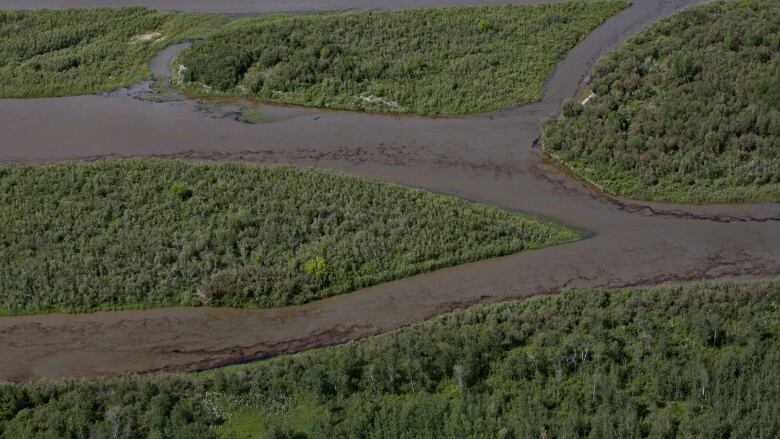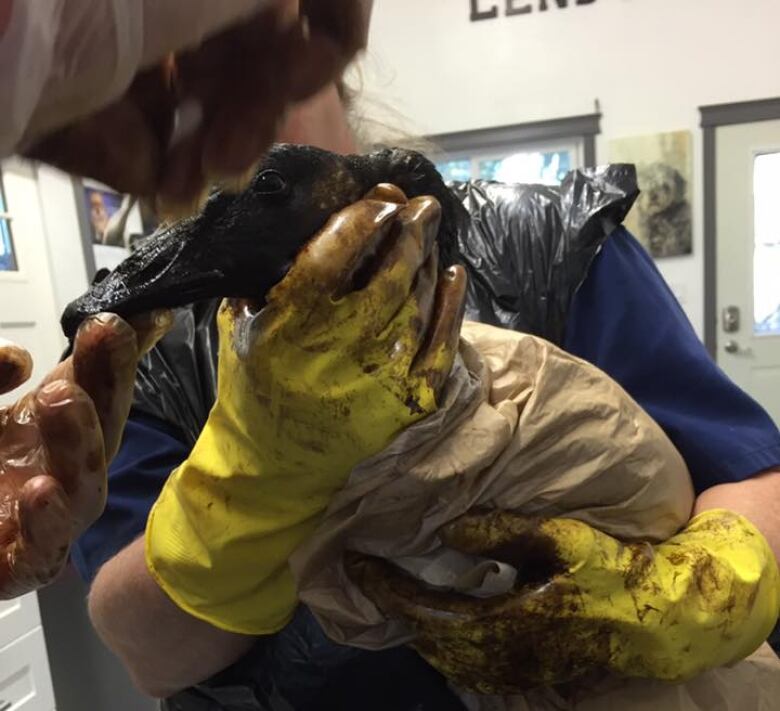Toxicologist has questions after Husky Energy water report
'There are some details lacking' says Vince Palace

An aquatic toxicologist based out of Winnipeg says it will be months before it becomes clear how long oil will be sitting at the bottom of the North SaskatchewanRiver.
Vince Palace has been studying the impacts of oil spills on water and environment for more than 25 years. He said his generalconcern is that there is a lack of baseline data to understand what the affects will be on the river. He also has questions about the Husky Energy water quality report released last week.
- Husky oil spill: Report says recent water tests coming back within guidelines
- Husky oil spill: Sask. government doing its own testing of Husky water results
"I guess there are some details lacking in terms of how soon after the samples were taken, what the methods employed were when they took those samples, and what the detection limits were on some of the compounds."
The study saidthe last sample to exceed national guidelines was takenJuly 24. The report also mentionedwater around intakes at NorthBattlefordand Prince Albert, Sask., came back clean.
Palace saidin order to make a real evaluation on how the North Saskatchewan River and the drinking water will be affected, moredetails need to be tracked and shared.
On July 21, upwards of 250 cubic metresof oil spilled from a Husky Energy pipeline. Since then crews have been trying to clean up most of the oil. 88 animals have died as a result.

"When we talk about crude oil we're talking about thousands of different compounds," said Palace. "Some of the smaller molecules do dissolve in water and can be acutely toxic to fish and other aquatic organisms."
Palace addedover the first couple of days the compounds in the oil dissolve into the air and can be a concern for human health.
"It can actually be breathed in," he said. "Heavier compounds can produce chronic toxicity."
As for a timeline on how long the oil could be sitting at the bottom of the river, Palace saidthatis still a big question mark.
"You're probably not looking at weeks but probably months in being able to remove that product. It really depends on the type of product andthe weather that we'll have over the next little while."
Palace said the biggest problem manyfacewhen assessing the impacts of an oil spill is the lack of information collected before it happens.
"We need to know what is there in terms of the aquatic community, the water quality, sediment quality, before a spill happens."
Palace said right now officials are comparing this oil spill to what they don't know, rather than what they do know. He said he hopesindustry officials and regulators are able learn something valuable about remediation during what he calls a horrific event.












_(720p).jpg)


 OFFICIAL HD MUSIC VIDEO.jpg)
.jpg)



























































































